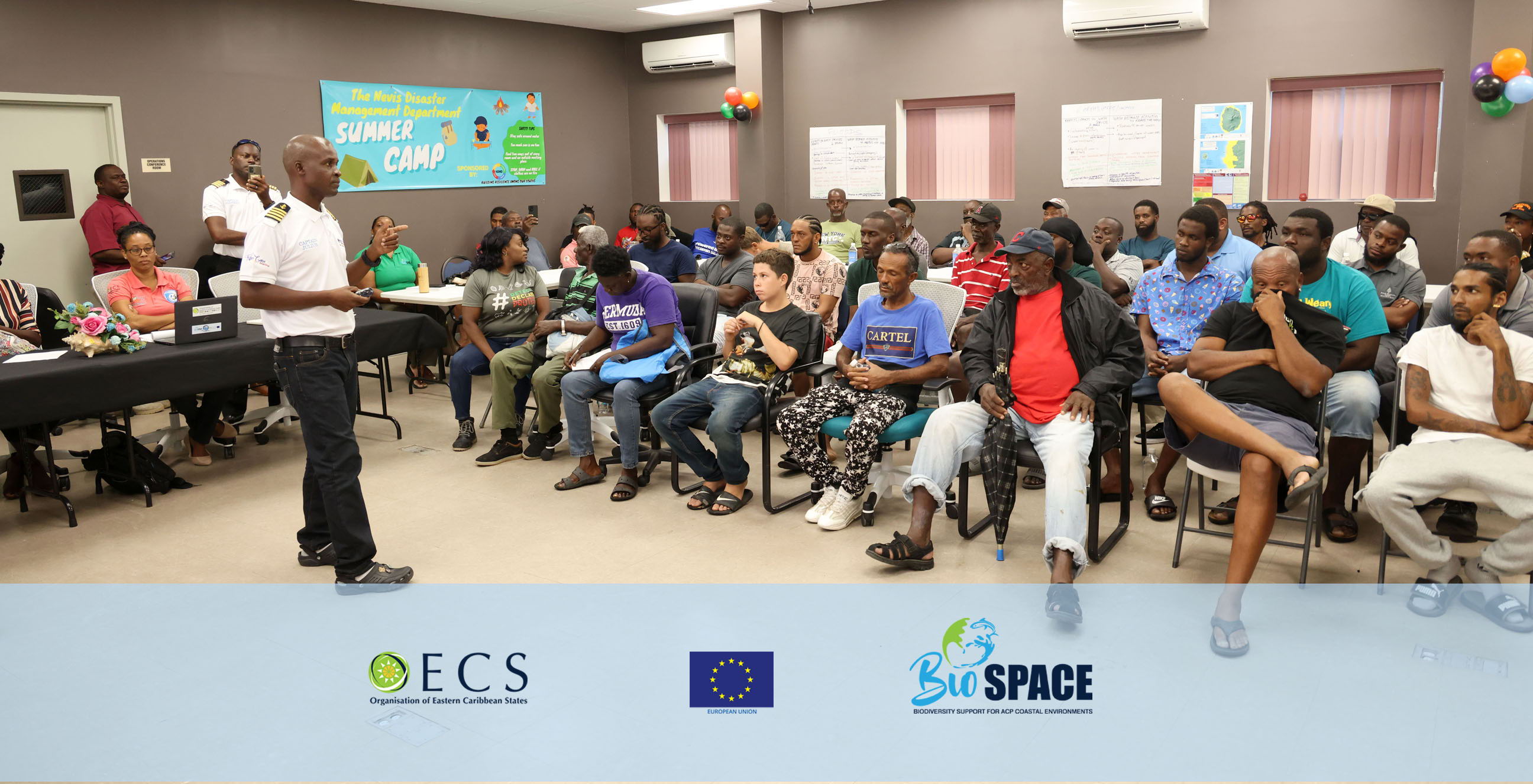The OECS Trains 108 Persons in Safety at Sea
OECS Media Release
August 28, 2023 — The safety of fisherfolk at sea in OECS Member States has been a perennial concern for authorities across the region. Most fishermen in the region set out to sea in pirogues approximately 12-14 feet long, often facing harsh weather conditions, relentless waves, accidents, and the occasional boat engine failure. While the region has made several strides to improve the safety of fishermen, continuous improvement and training are needed to better the industry, support livelihoods, and preserve the lives of fishers, which remains paramount.
The Organisation of Eastern Caribbean States (OECS) conducted Safety at Sea training sessions for fishermen in St. Kitts and Nevis, and Dominica during the week of August 14 to 18, training a total of 108 persons. Mr. Sherwin S. Julius conducted the sessions in St. Kitts and Nevis – a Maritime expert with over 25 years of experience – while the session in Dominica was conducted by Norman J. Norris, founder and CEO of NJN Consulting Group, with over 25 years of experience in the marine space.
Mr. Sherwin Julius began his presentations by telling the fisherfolk that on ocean vessels, ““Safety first” must be what anyone working on fishing vessels should keep in mind. Safety must be given priority because proper safety measures will save lives, protect vessels from damage, prevent serious accidents and injuries, protect the environment and contribute to profitable fisheries.” Mr. Julius added that the owners, operators, and captains of all fishing vessels are responsible for training their crew on safety.
Incidentally, about two days before the training in Nevis, some fisherfolk from Nevis had to be rescued by the St. Kitts and Nevis Coast Guard after their boat capsized on a return sea voyage from Anguilla. This incident sparked great interest within the fishing community on the island.
At the end of the sessions, one of the participants from the St. Kitts cohort, Sandy Wilkin-Francis, said that one of the takeaways for her was, “Safety never takes a vacation.” “This tagline is something we should be mindful of when going to sea. During the workshop, we learned quite a lot about being safe on the vessel, procedures that can be used and should be used to mitigate any hazard at sea,” she concluded.
Speaking about the session in Nevis, Lakisha Rogers, a fisherwoman from Nevis, said, “It was a really good workshop because, as a young fisherwoman, I learnt a few things I didn’t know in terms of safety at sea – what to do, what not to do when on the sea. I’m glad I was a part of it.”
The training sessions were conducted through the European Union-funded BioSPACE Programme – Biodiversity Support Programme for ACP Coastal Environments – which was developed to contribute to the sustainable development of ACP Small Island Developing States (SIDS) and coastal countries while at the same time supporting efforts towards achieving the Sustainable Development Goals (SDGs). BioSPACE is aimed at increasing the capacity to manage and sustainably use marine coastal resources in the region, while the ILM Project seeks to optimise the contribution of land to agriculture, food security, climate change mitigation and adaptation, and the preservation of ecosystems and the essential services they provide.
Danny Moonie
OECS Communications Unit







